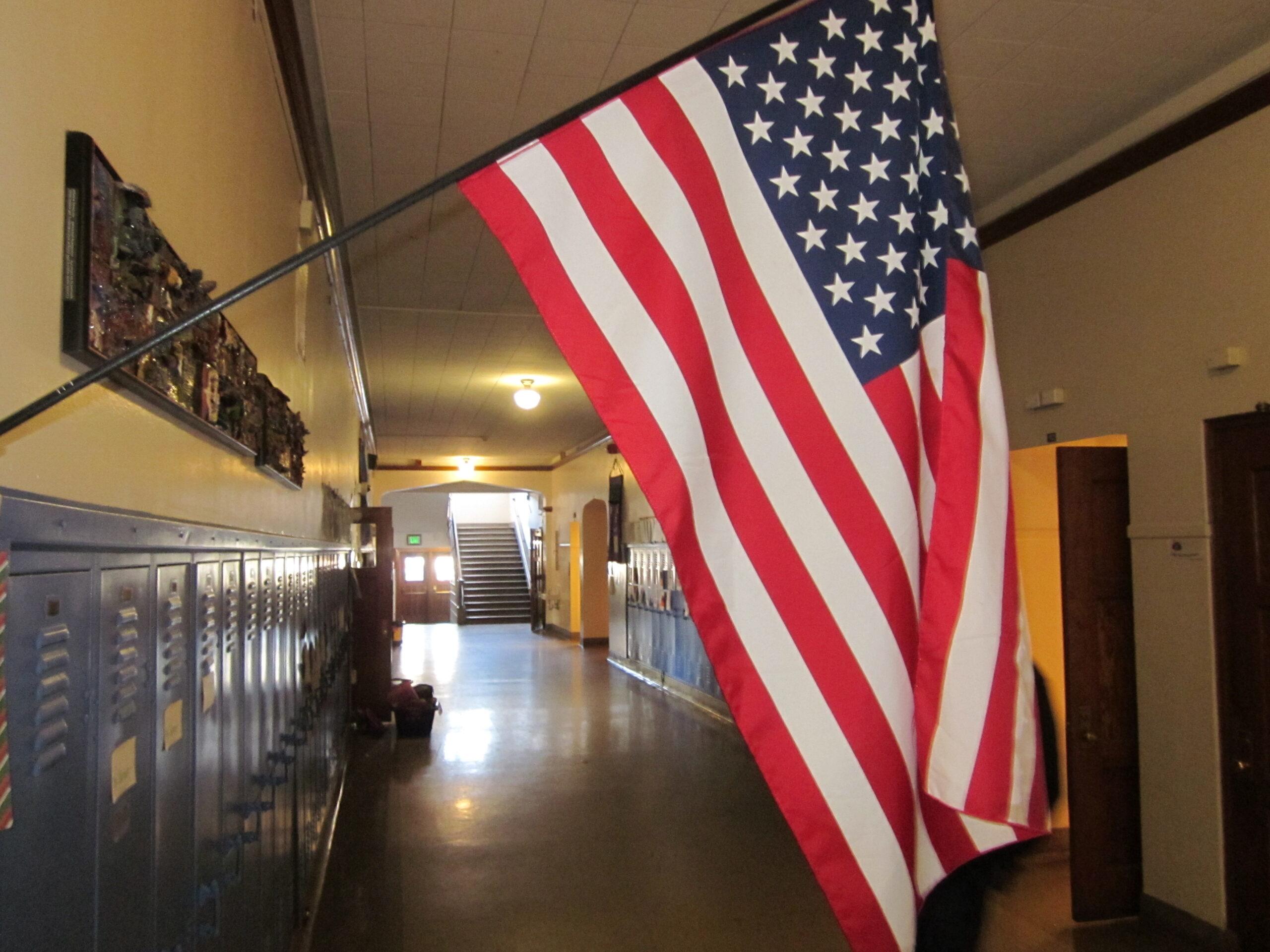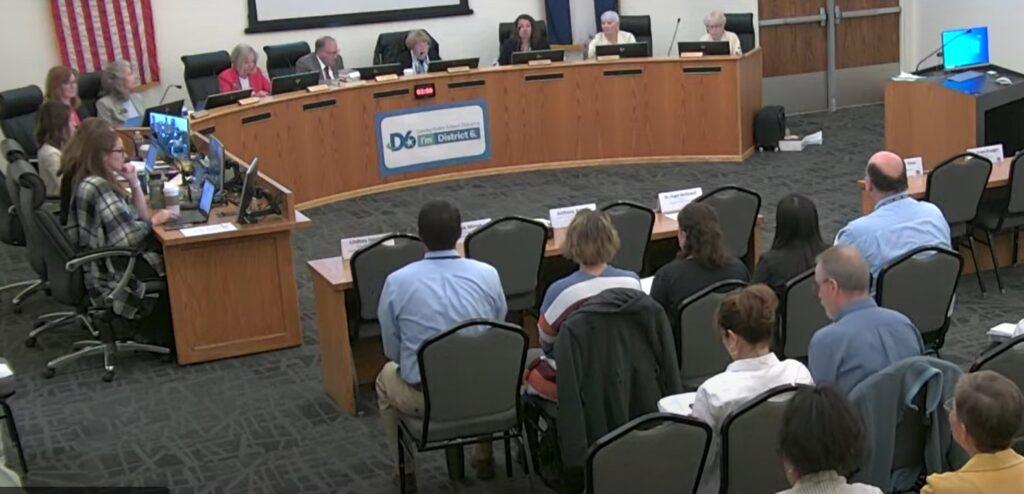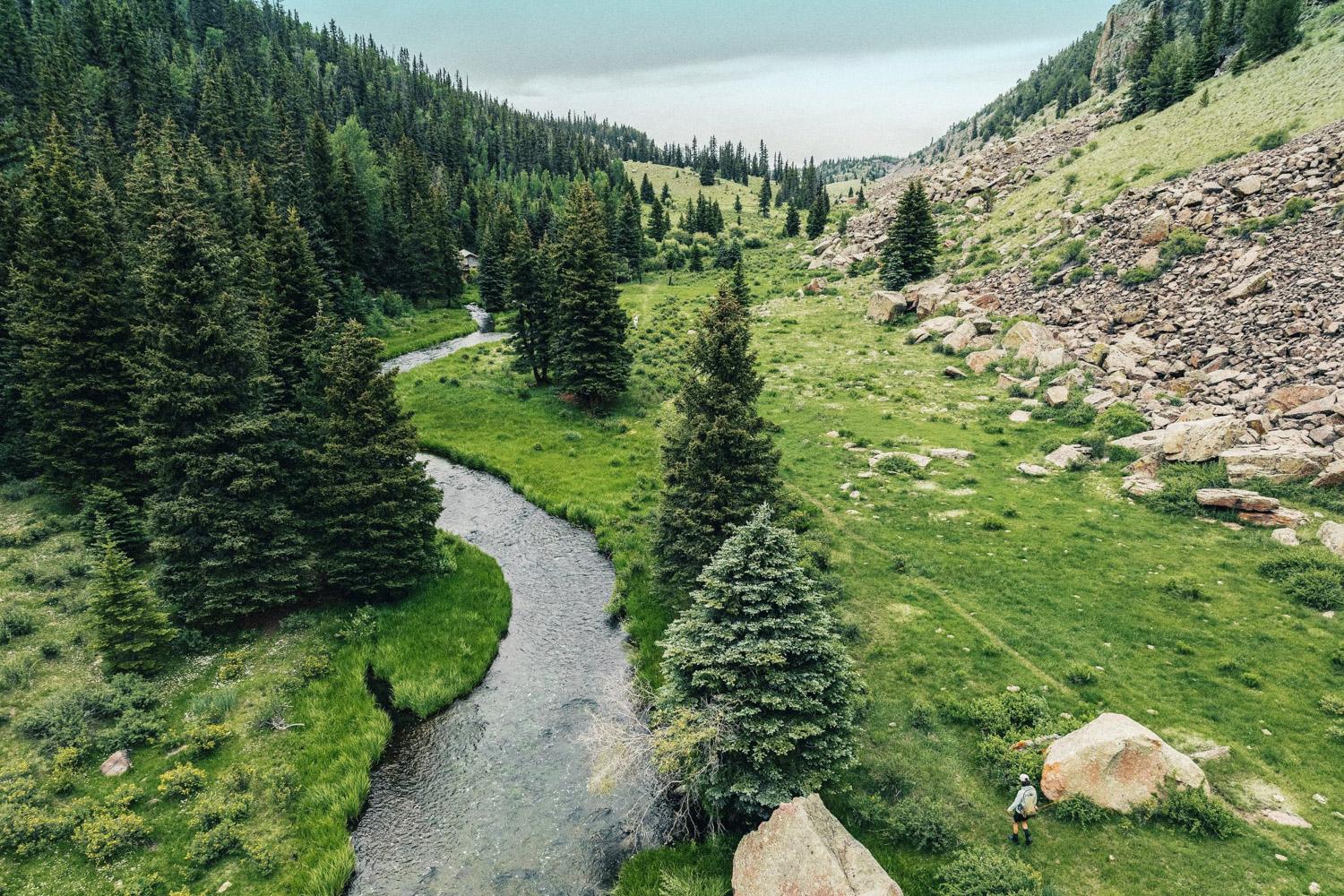
The state board of education voted 4 to 3 Wednesday against adopting a national conservative coalition’s American Birthright social studies standards to guide Colorado educators who are teaching history, economics, geography, and civics.
The board, which often has unanimous decisions on issues relating to assessments, teacher licensure, and reading strategies, voted along partisan lines, with the four Democratic members opposing the Civic Alliance’s American Birthright social studies standards and three Republicans supporting.
“I see this proposal kind of like Swiss cheese in that it's not all bad, but it's full of holes,” said board chair Angelika Schroeder, a Boulder Democrat representing the 2nd Congressional District.
The last-minute proposal to replace Colorado’s social studies standards with the American Birthright standards, which emphasize Western civilization, American exceptionalism, patriotism and Christianity, would have effectively killed the work of a 37-member commission that has worked on revising Colorado’s social studies standards for the past year and a half.
The state board debate included one member comparing how many times “God” and “flag” was in the American Birthright standards versus Colorado’s social studies standards, the revelation that one board member looked up the political affiliation of every member of the volunteer commission, and an apology from another board member to commission members with a pledge to honor their work.
Colorado’s social studies standards are revised every six years. This year’s update meant they needed to reflect five new Colorado laws. Wednesday’s debate over the civics and media literacy standards is just one part of the social studies revision. In November, the board is expected to vote on changes made to reflect another law. It requires that schools teach students about the history and contributions of people of color and LGBTQ people. That issue has generated the most controversy, with the commission removing many of the references to minority groups from the latest revision. That state law created the commission, tasked with making sure the standards conform to law.
Why was there a proposal to adopt the American Birthright standards?
In Wednesday’s debate, Republican board member Debora Scheffel said Colorado’s receiving a D on its history and civics standards from a conservative leaning think tank prompted her to put forward the American Birthright standards. She said she tried to make large-scale changes to Colorado’s standards through amendments to the revision process.
“I couldn't do it and end up with an adequate, parsimonious document,” she said. “I tried and I have pages here of attempts to do that, but it just didn't lend itself to it.”
She said Colorado’s standards lack clarity, structure and organization, consistency and cohesiveness. She hoped American Birthright could be a starting place to build upon.
“I feel like to miss the opportunity to look holistically at our standards is a missed opportunity.”
Democratic board member Lisa Escárcega said Colorado was graded a D because the state doesn’t determine curriculum – individual school districts do, which means the state’s history and civics standards lack specificity compared to other states.
While board members exhaustively combed over every line of Colorado’s standards in the revision process, there was little discussion of the American Birthright standards prior to a vote.
Escárcega said she had concerns about them simply by looking at Civic Alliance’s statements. It opposes pedagogies that include current events, project-based learning, civic engagement, current events learning, social emotional learning and any pedagogy that claims to reflect diversity, equity, inclusion, among others, she said. The Civics Alliance also opposes the federal government funding education.
“These standards are too extreme for the state of Colorado,” she said.
Other board members, however, are concerned that students’ ability to learn historical facts is being muddied by other learning objectives.
Republican Board member Joyce Rankin said only 25 percent of high school students are proficient in civics. She believes teaching strategies such as inquiry-based learning and teaching students about civic engagement is getting in the way of learning the basics.

Rankin noted that the word “constitution” shows up 111 times in the American Birthright standards but 24 times in Colorado’s standards. The word “God” shows up 12 times in American Birthright, but never shows up in Colorado’s standards, she said. She compared the frequency of other words such as “flag,” “media literacy,” and “pledge of allegiance.”
One board member, Republican Steve Durham, alleged that that the commission that has worked on updating and revising the standards was biased.
“Would you care to guess the political affiliation of the 37 members?” Durham asked fellow board member Karla Esser. He said his “own research” showed the composition was more than two to one Democrat.
“The reality is that experts come with bias, and that’s just fact. These standards were not produced in an unbiased manner.” He later added: “I’m not sure we even need standards, particularly in these areas.”
He said he would like standards built around source documents and court decisions.
“Facts matter, timelines matter, and those are being lost in the attempt to make everything identity politics.”
Democratic board member Rebecca McClellan apologized to members of the commission, emphasizing that their work is not a partisan set of academic standards. All Coloradans were invited to apply to be members of the commission two years ago and the department of education selected the members in a blind review.
McClellan said commission members had a variety of political affiliations and applied through an open process that didn’t discriminate.
“I also don't think it's respectful to take over a year's worth of work that they have put in, in good faith with the support of our staff at the request of this board and this department, to simply throw their work over.”
Once the American Birthright standards were voted down, board member Rankin tried to amend parts of the latest Colorado civics standards revision.
She unsuccessfully tried to strip out of the standards the Declaration of Sentiments, a document scholars’ credit with launching the long struggle for gender equality, punctuated by the 19th amendment of 1920 guaranteeing women’s right to vote.
“I think they detract from our foundation and what our forefathers have said,” she said.
She also tried to amend wording relating to students engaging actively as community members with different levels of government.
“It connotes possibly a dangerous unsafe situation. I think that our high school kids should be more involved with pride in America and not (with) destroying some of the things that are already there,” Rankin said.
She objected to the inclusion in the standards of the Great Law of Peace, the Iroquois Confederation’s oral narrative establishing democratic principles, some of which, a U.S. Senate resolution states were incorporated into the U.S. constitution itself. Rankin said the Great Law of Peace was “legend.”
“Have you ever played the game telephone where you start something and it goes around in a circle and it comes back to the first person and has nothing like they originally had? We don't know how much of this legend … it hasn't been written down … I just think we need history. We are from Europe. We began that way.”
Her proposed amendments were voted down 4 to 3 — also along party lines. The state board may vote on the rest of the social studies standards at its next board meeting in November.
Partisanship is increasingly seeping into discussions at the state board, which has seven members corresponding to Colorado’s congressional districts. This November’s election could shift the party control from Democrat to Republican, when the board expands to nine members. One of the new seats is at-large, representing the entire state.









